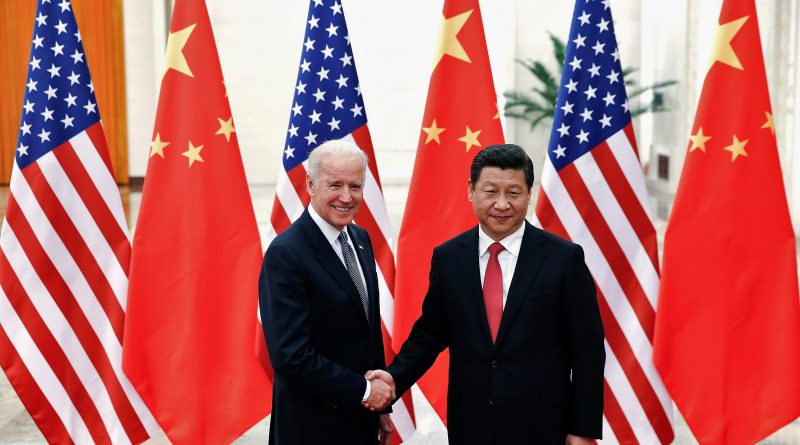FOCUS on Global Summits: G20 – Biden-Xi
Charlotte Sens
Staff Writer
On November 14, China’s President Xi Jinping and the President of the United States Joe Biden sat down for the first face-to-face of Biden’s presidency as the G20 meeting began in Bali, Indonesia. The two world leaders discussed global challenges and assured each other of their viewpoints on various issues. This meeting, which was weeks in the making, marks a modest yet positive shift in U.S.-China relations that has the potential to significantly impact many facets of today’s international system.
Biden and Xi have met five times prior to the summit, however, all of the meetings have been online or via phone call. In this most recent meeting, the presidents discussed hot topics such as China’s aggression against Taiwan and the conflict in Ukraine, according to CNBC.
Taiwan was one subject which Xi acknowledged as a ‘red line’ that must not be crossed in China-U.S. relations. Tensions have slowly been rising between the U.S. and China over the past decades, however, former President Donald Trump’s trade policies have since ratcheted tensions and resulted in a trade war. The Biden administration has not repealed these policies but, instead, has limited the export of advanced computer chips to China. Since House Speaker Nancy Pelosi’s August visit to Taiwan, China has increased military activity around the island and further exacerbated tensions between the nations. However, the Wall Street Journal reports that, while China wishes to reunify with the island nation, it does not wish to do so by force, revealing to U.S. officials that China seems not to have imminent plans to attack Taiwan.
Regarding the Russia-Ukraine conflict, both Biden and Xi resolidified their shared belief that the use or threat of use of nuclear weapons is “totally unacceptable” in response to Putin’s repeated statements affirming Russia’s right to utilize these weapons in the conflict. While speaking to press after the meeting, Biden reportedly said the there “need not be a new Cold War” between the United States and China. China’s history of human rights abuses, the country’s coercive trade practices, and North Korea’s nuclear missile tests were also a topic of discussion.
Foreign Policy remarked on the significance of this meeting, as both China and the United States have been leaning towards isolationism. This has caused an uptick in reactive policy decisions that have placed the nations in opposition to one another. Furthermore, China enacted the Zero-COVID Policy in 2019 as COVID-19 began to spread. This policy, according to the Congressional-Executive Commission on China, has resulted in the strict enforcement of quarantine, enforced a rigid maintenance of public health protocol, and has been marked by censorship, the criminalization of criticism, and secrecy surrounding scientific data. The Zero-COVID Policy has also led to significantly lower levels of foreigners within China and has put policymakers in both China and the U.S. into ideological vacuums that have led to a rise in tensions, according to Foreign Affairs.
The conclusion of this talk was marked by promises of continued communication, as AP News reports that the two agreed to “empower senior officials” to pursue cooperation on various issues including the climate crisis and the maintenance of global health as well as financial and food security. To further solidify this pursuit of cooperation, Secretary of State Anthony Blinken is set to travel to Beijing to discuss climate change. Cooperation on the topic of climate change stands to significantly impact the direction of the climate crisis as the United States and China are the top two contributors to global greenhouse gas emissions. Should the nations pursue open communication, officials believe that it would be possible to stave off the worst-case climate scenarios.
Both Biden and Xi have experienced recent successes in their respective domestic political spheres, with the Democratic Party retaining control of the U.S. Senate and Xi Jinping being recently re-elected for his third term as president of the People’s Republic of China. In light of these recent victories, officials in both nations are optimistic that these modest gains won from in-person talks will only serve to ease tensions and forge ties between the nations.
Image courtesy of USA-CHINA


